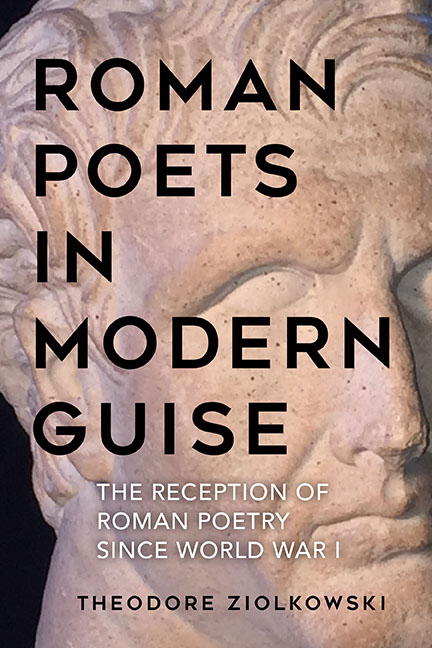1 - Virgil’s Eclogues
Published online by Cambridge University Press: 21 October 2020
Summary
Inone of the seminal works of modern literary scholarship, European Literature and the Latin Middle Ages (1948), Ernst Robert Curtius remarked that the influence of Virgil's Eclogues is hardly less significant than that of the Aeneid. “From the first century of the imperial age down to the Age of Goethe all Latin education began with the reading of the first eclogue. It is not going too far to claim that anyone who does not have this little poem in his head lacks a key to the literary tradition of Europe.” Curtius adduces the First Eclogue especially as evidence for the locus amoenus of the idealized landscape. But as we look at the twentiethcentury reception of this charming poem, we see that it has inspired a variety of responses that go well beyond the bucolic.
In France and Germany
In Germany, pace Curtius, it was not the first but the Fourth Eclogue with its dream of an aetas aurea—a dream exploited both for religious and generally cultural reasons—that commanded the attention of poets and scholars alike. Theodor Haecker's influential book Virgil: Father of the West (1931) is typical of this view; Haecker discusses the Fourth Eclogue in a separate chapter entitled “Anima naturaliter christiana.” Walter Wili, author of the first German biography of Virgil, wrote that “the final goal of Virgilian longing for fulfillment was the aetas aurea, the Golden Age” discovered in the Fourth Eclogue. Although he recognized that the Eclogues display conspicuous parallels to the political situation of Europe in the 1930s, Rudolf Alexander Schröder, whose translation of the Eclogues claims a stature in Germany equal to that of Valéry's in France, shared this reverence for what he termed “the world-famous Fourth with its ‘Christian’ prophesy.”
In France, where the influence of Virgil had remained continuous and profound, the response was different and broader. Most generally, he was hailed—for instance, by the writers of the journal Latinité—as the supreme representative of a cultural latinitas. Others—notably André Gide and Marguerite Yourcenar—privileged the Second Eclogue as an homage to homosexuality.
- Type
- Chapter
- Information
- Roman Poets in Modern GuiseThe Reception of Roman Poetry since World War I, pp. 19 - 29Publisher: Boydell & BrewerPrint publication year: 2020



